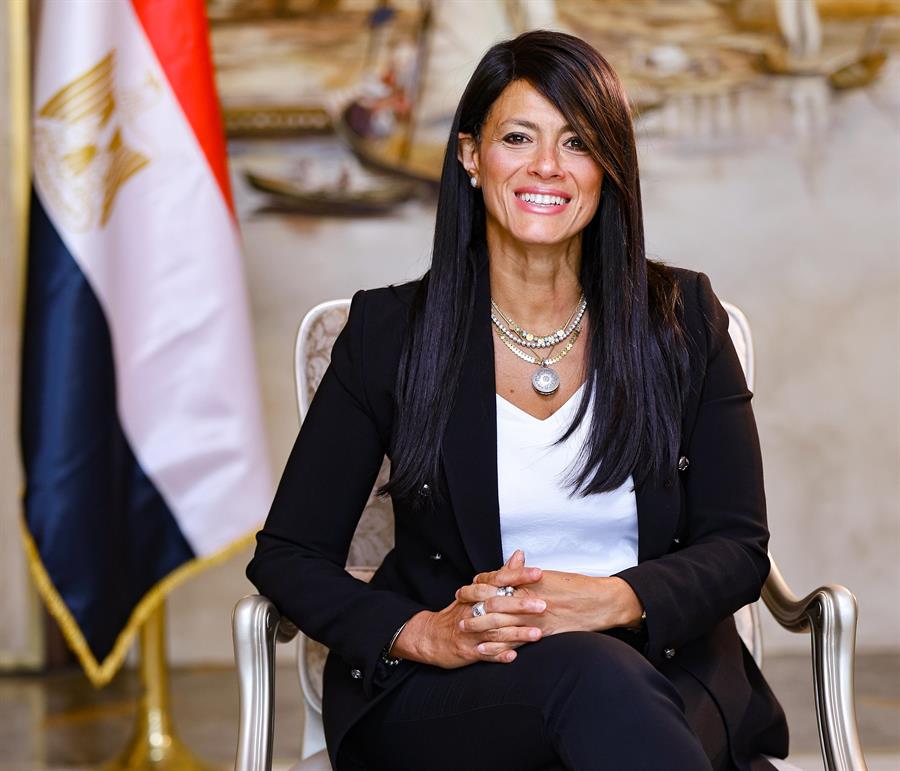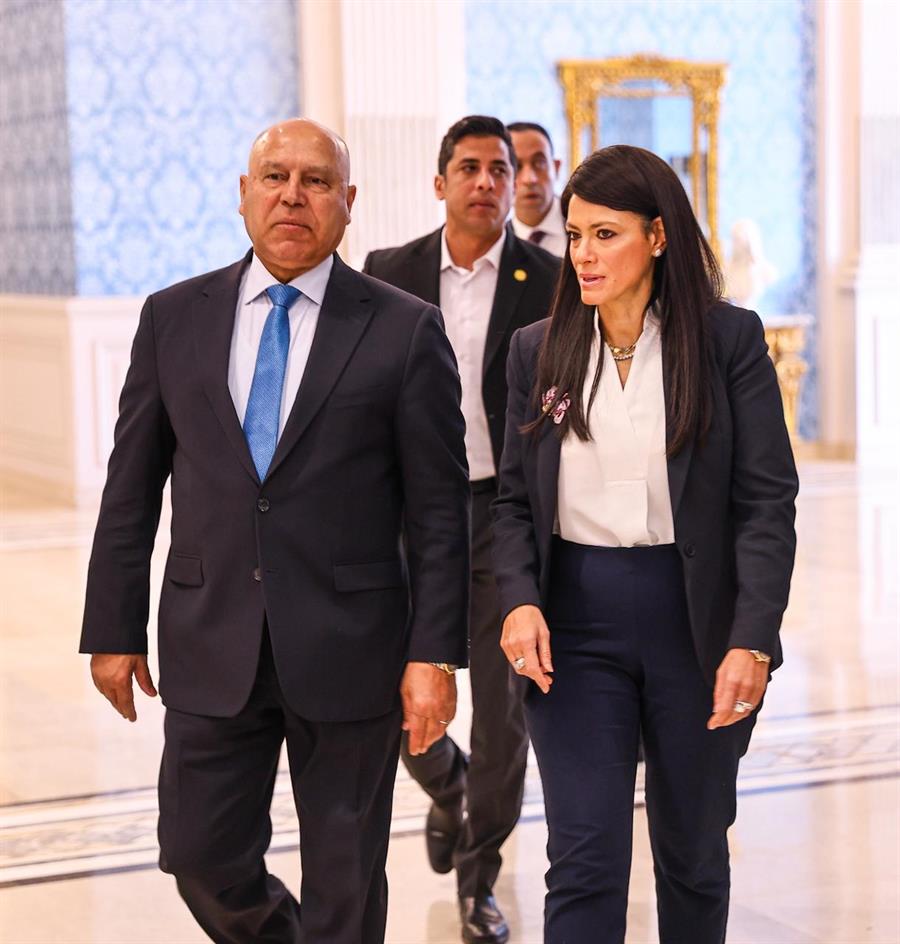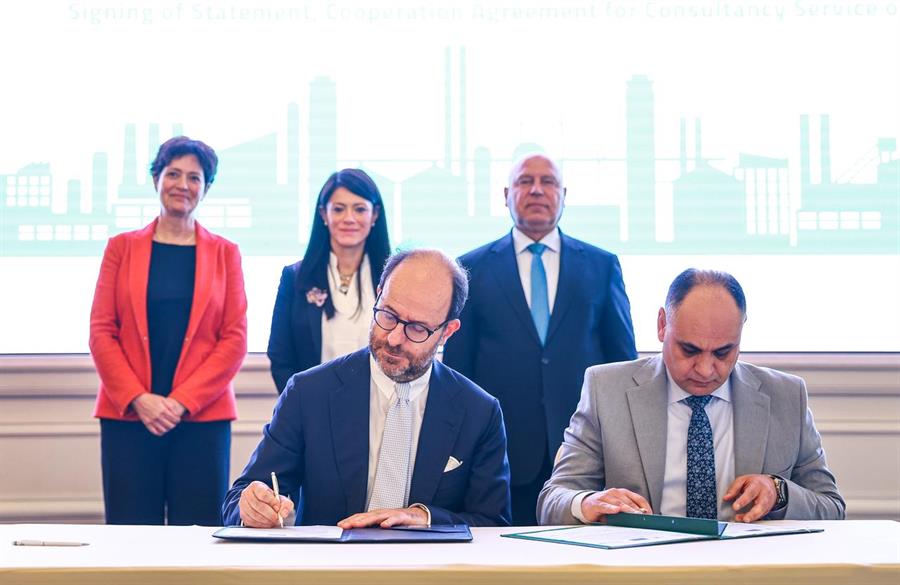Minister of Planning: Plan to confront Corona aims at preserving health and continuation of economic activity

19 December 2020
Dr. Hala El-Said, Minister of Planning and Economic Development, participated on Saturday at the Seventh Economic Conference of the Akhbar Al-Youm Foundation, which was held under the title "The Egyptian Economy: Achievements and Challenges in Light of the Coronavirus Pandemic", under the auspices of Prime Minister Mostafa Madbouly.During her speech Dr. El-Said reviewed the dimensions of the developmental experience of Egypt, pointing to the great political, economic and social changes and challenges that Egypt has witnessed in recent years, and the consequent accumulation of structural imbalances that the Egyptian economy has suffered from for many decades. She added that the Egyptian state worked to achieve a development plan based on comprehensive planning and an ambitious vision for the future, exemplified by Egypt's Vision 2030, which is based on a participatory approach to represent the national version of the UN goals to achieve sustainable development, along with the general framework of organizing plans and interim work programs for the coming years.El-Said stressed that the government's implementation of many reforms through the first phase of the national program for economic and social reform since November 2016 has led to the achievement of macro stability and comprehensive growth, which was reflected in the positive indicators witnessed by the Egyptian economy during fiscal year 2019/2020 and before the outbreak of the Covid-19 crisis.The minister noted that the Egyptian economy has become more flexible and can absorb external economic shocks, including the increasing regional dangers and the Corona crisis, so international institutions have positive expectations regarding the Egyptian economy, which is the only economy in the region and among the few economies in the world that achieved positive growth rates in light of the pandemic. Egypt achieved a growth of 3.6% in the GDP, against the expectations of international institutions that Egypt would achieve a growth of only 2%. She added that the reform efforts and the diversification of the Egyptian economy contributed to this, despite the relative decline in some indicators due to the outbreak of the pandemic.El-Said also reviewed during her speech the set of proactive policies taken by the government, which relied on a clear and thoughtful plan targeting all social groups and sectors to mitigate the effects of the Corona pandemic. This is based on several axes, on top of which is supporting the affected sectors by reducing financial burdens and providing liquidity and credit to these sectors, including tourism, aviation, shipping, travel, and the medium, small and micro enterprises sector, in addition to supporting regular and irregular employment, working to revitalize the economy by increasing incomes, increasing investments in priority sectors, and adopting incentive monetary and financial policies that include lowering interest rates, postponing and rescheduling debts for some sectors, financing packages, and postponing tax payments and some sovereign dues, in addition to paying attention to the process of communication and transparency through the press conferences of the Prime Minister and the ministers to inform citizens periodically of all developments about the crisis and the measures taken by the government to deal with it.El-Said stressed that all the government's measures regarding this crisis come within the framework of the state's keenness to achieve a balance between preserving citizens’ health and continuing the wheel of economic activity.She explained that the Corona crisis rearranged the priorities of all countries, which highlighted the importance of several areas that represent urgent priorities for most countries of the world and their flexibility, especially the sectors of health services and medical supplies, agriculture, food industries, communications and information technology, and industry. This has contributed to shaping the features of the government's plan in the coming period to achieve comprehensive and sustainable growth by increasing public investment in these promising sectors by 70%, in addition to paying attention to social protection networks and creating job opportunities through the expansion of the number of beneficiaries of the Takaful and Karama program, and expansion in implementing the "Decent Life" and Survival Boat initiatives for the villages most in need as the most important tools to enhance the umbrella of social protection.El-Said added that the health and education sectors are of the utmost importance to the Egyptian state, as they are the main tools for development and building human capabilities and the main entry point for the progress of society. She noted that the health sector investments in the 2020/21 plan increased by 50%, while the education sector investments increased by 80% intending to develop schools and classrooms, to improve the absorptive capacity, and to expand the establishment of technical schools and technological and private universities to link with the needs of the labor market.The state also attaches the utmost importance to the communications and information technology sector within the framework of enhancing the trend towards digital transformation and intensifying investments in this field, as it aims to expand investments in the information infrastructure and digitization sector by an increase of about 300%. This is in addition to the industry sector in general, especially the manufacturing industries, and it comes among the main sectors on which the state's efforts are focused to achieve sustainable growth, diversify the productive structure, and create decent and productive work opportunities.El-Said added that the Corona crisis has demonstrated the necessity of localizing some industries, including medical products, and increasing self-sufficiency ratios, in addition to deepening agricultural industrialization and localizing products of the telecommunications sector, the manufacture of trains and railway requirements, the manufacture of household appliances, and the furniture industry, in order to benefit from the changes taking place in global supply chains and entering new markets where Egyptian products enjoy competitive advantages.The minister also pointed out that in light of the environmental changes that the world is witnessing and the state’s interest in sustainable development and the trend towards a green economy following Vision 2030, the government has adopted a national strategy for the transition to a green economy, and work is underway to achieve 30% of investment projects in the state’s plans for the concepts of environmental sustainability and green economy. The rate will be 100% in the next three years.In cooperation between the Ministry of Planning and Economic Development and the Ministry of Environment, standards for environmental sustainability were set, which were already approved by the Council of Ministers in October, and work is underway to train human cadres in various Egyptian authorities to apply these standards. At the same time, Egypt was at the forefront of the countries in the region that issued green bonds in international markets.El-Said indicated that among the priorities comes the Egyptian state’s interest in the localization of development, or what it calls “local localization for the sustainable development goals,” intending to achieve the concept of “inclusive and sustainable growth and balanced regional development” as one of the main pillars of Egypt's Vision 2030. This aims to maximize the comparative advantages of the Egyptian governorates and regions and to direct investments within the framework of the state’s general plan more efficiently and effectively, with a focus on governorates that have larger development gaps.Regarding Egypt's Sovereign Fund, Dr. El-Said said that the fund was established as one of the mechanisms to create more opportunities for effective partnerships between the public and private sectors in order to implement joint investments that achieve mutual benefit and interests and to create wealth for future generations by maximizing the use of the value inherent in exploited and untapped assets in Egypt and achieving financial surpluses that enhance efforts to achieve sustainable development.El-Said said that the fund has succeeded, since its inception, in attracting investors and partners from home and abroad and signing agreements to enter into multiple partnerships despite the economic challenges that the recent period has witnessed. The General Authority for the Suez Canal Economic Zone and investors from the private sector joined together to localize the railway car industry to meet the needs of Egypt and provide great export opportunities by signing the contract of establishing the National Company for Railroad Industries (NERIC) between the General Authority for the Suez Canal Economic Zone and the Sovereign Fund of Egypt, along with several Egyptian private sector companies.









